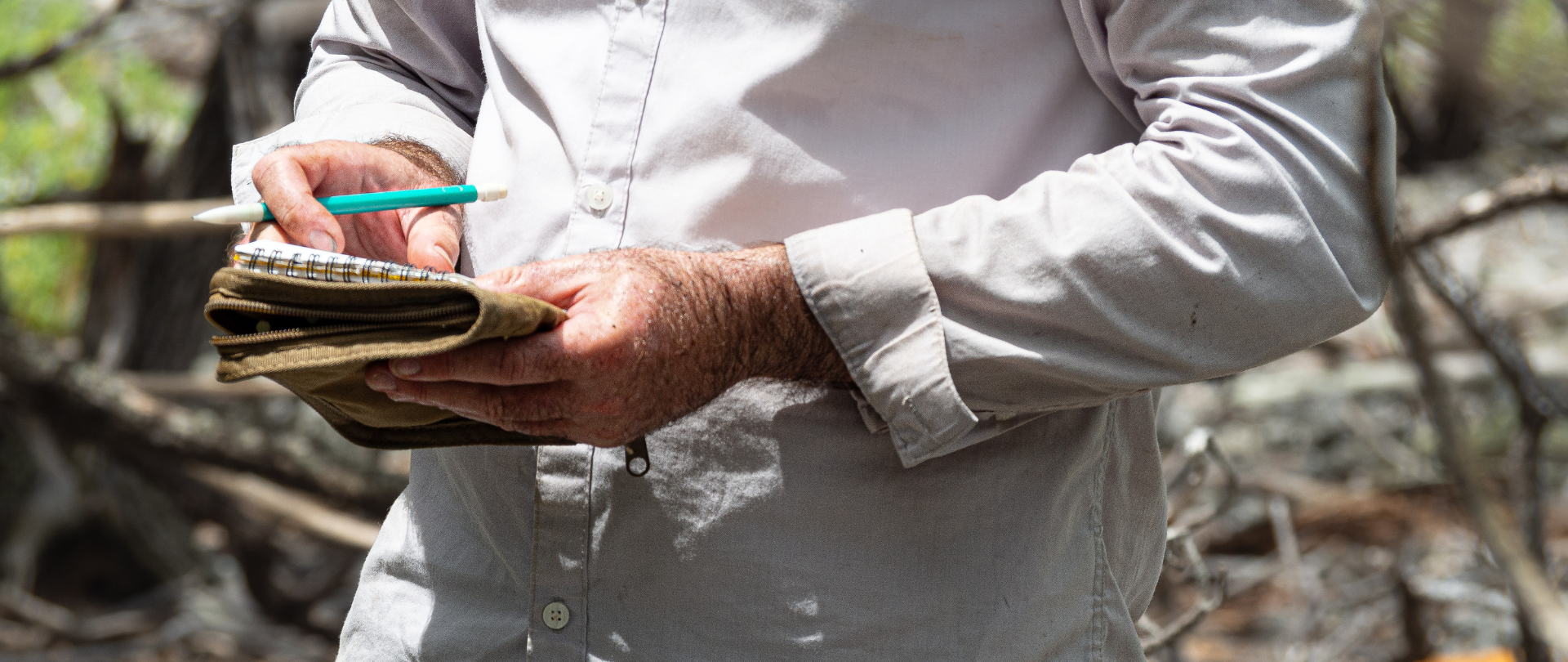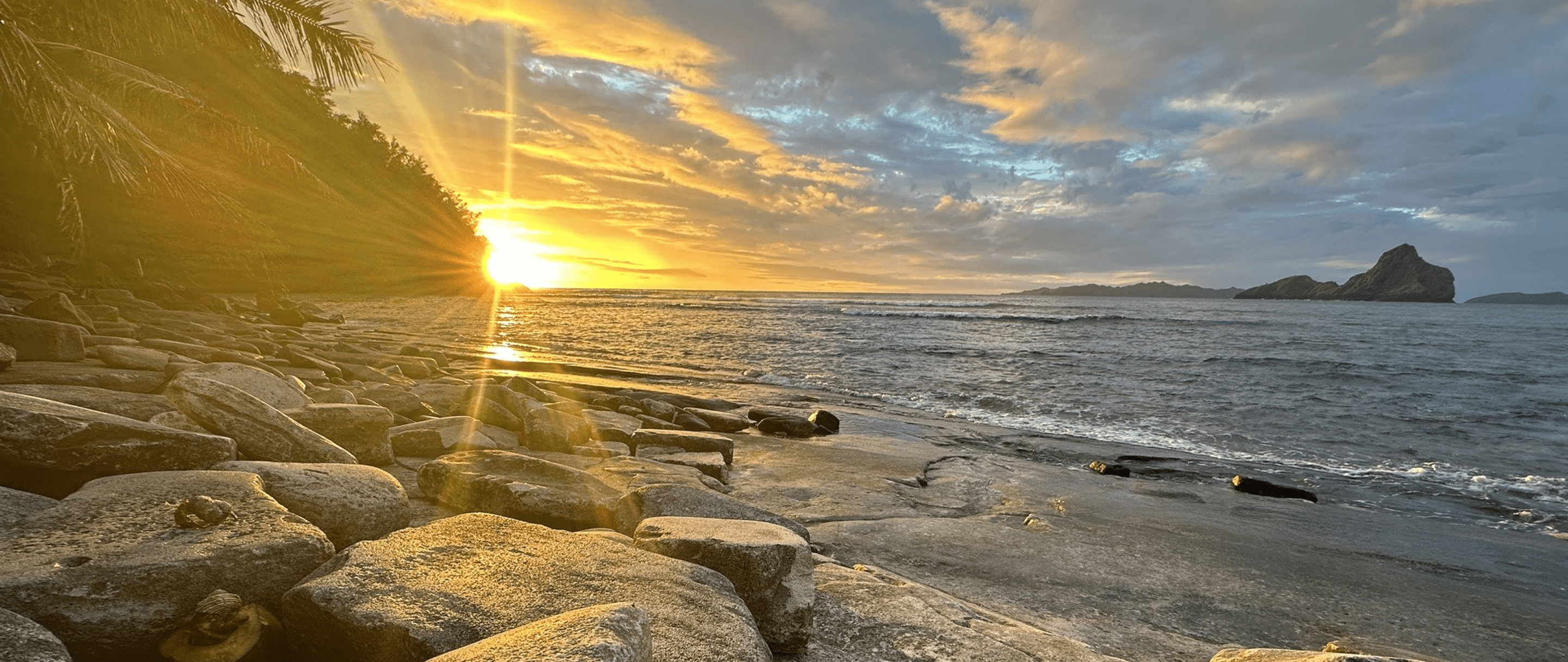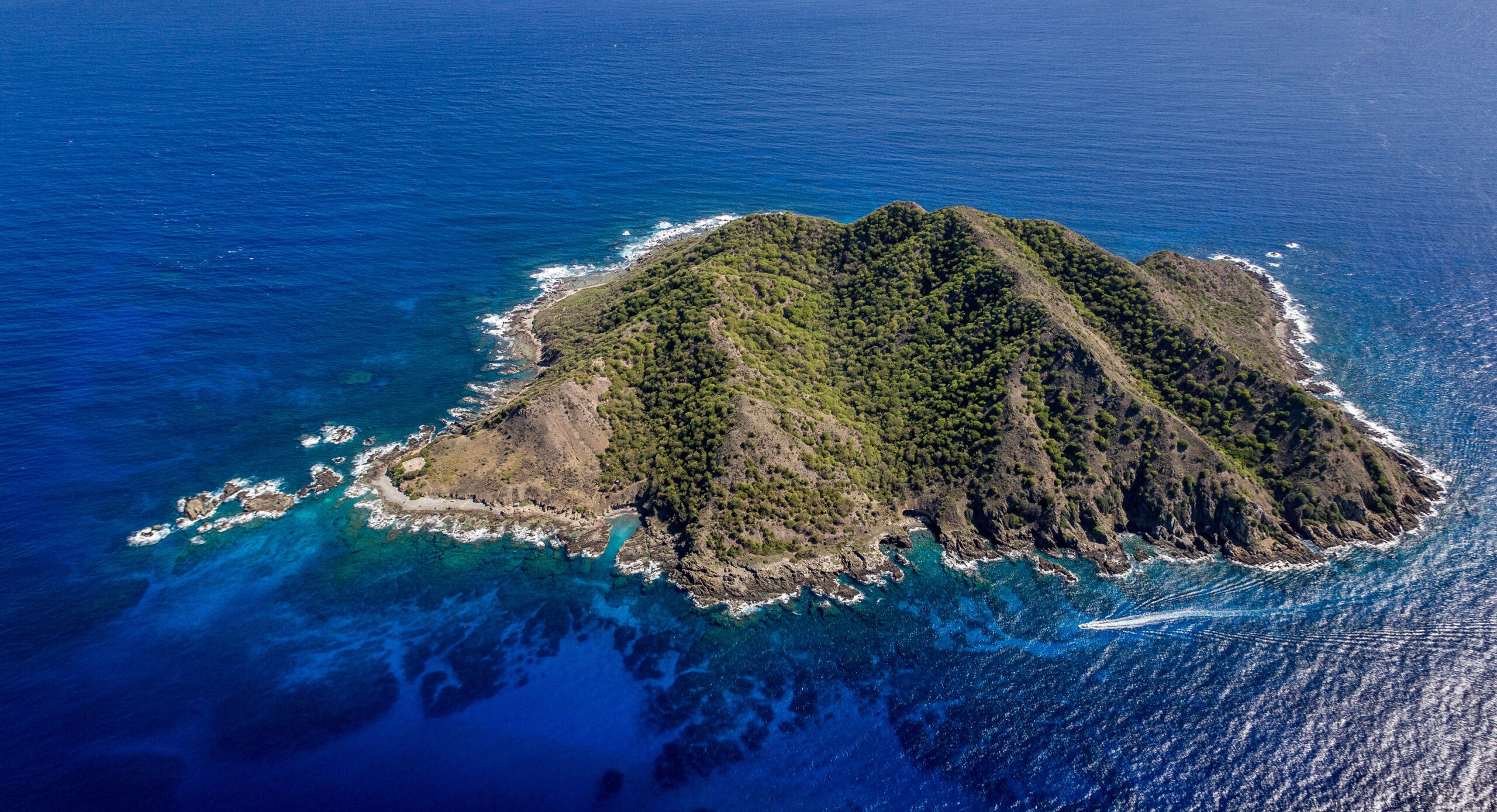New Paper Demonstrates Quality of eDNA Monitoring for Conservation
Groundbreaking research has the potential to transform the way we monitor invasive species on islands!
Our new online shop is live!
Published on
December 2, 2021
Written by
claudio
Photo credit
claudio

Global News Release
Work for Humankind: Lenovo invites you to work from one of Earth’s most remote locations with smarter technology
Research conducted by Lenovo™ reveals more than two-thirds of Gen Z and Millennial respondents feel it’s important to give back and contribute positively to local communities during a ‘Work from Anywhere’ experience
Lenovo, November 18, 2021 – Lenovo (HKSE: 992) (ADR: LNVGY) announces the launch of Work for Humankind, a bold initiative that calls on volunteers from around the world to take part in a once-in-a-lifetime opportunity: to make a long-lasting difference while working from one of the most remote places in the world with some of the most advanced, smarter technology. Lenovo is inviting volunteers from across the globe to apply for the opportunity to participate in daily life of this island community.
Work for Humankind’s location – Robinson Crusoe Island, a destination more than 400 miles west of mainland Chile and is one of the most ecologically rich places on the planet. Today, it faces many challenges in our changing world, this includes access to education, healthcare, the impact of habitat degradation, and invasive species. The local community, the international non-profit Island Conservation, and the Chilean Government have initiated a number of community-driven projects over the last decade to address these problems. However, these efforts are often hindered by telecommunications and technology challenges1. Despite this, the island community is committed to protecting their natural and cultural legacy and intends to achieve sustainability through greater independence to meet food and energy needs, and conservation of its natural and cultural heritage.
Work for Humankind will send select volunteers with a range of skills, backgrounds, and specialties to Robinson Crusoe to help prevent the extinction of endangered species and support the local community as it works toward achieving sustainability, all while being able to continue working their current jobs remotely. This will be done through several life-changing restoration projects in partnership with Island Conservation and the local community on Robinson Crusoe Island, including developing much-needed connectivity solutions for the Island’s infrastructure.
Lenovo is creating a cutting-edge technology hub with a range of technology devices, services and solutions from the company’s Intelligent Devices Group, including high-speed internet connectivity, which will help the Island advance its goals – equipping volunteers to do their day jobs remotely while also volunteering to support conservation projects on this haven of wildlife and cultural diversity. Lenovo is committed to leaving a lasting legacy on the Island to support the community’s goals and for the benefits to be felt long after the volunteer project is complete, which includes developing infrastructure to increase internet bandwidth to at least 10Mbps. To this end, a legacy fund will be established to maintain the community hub and support community projects.
Work hybrid like never before
Supporting this initiative is fresh research from Lenovo that reveals the growing significance of remote and hybrid work for Gen Z and Millennials. In addition, the study spotlights an increasing desire for flexibility due to its benefits for individuals and society overall – including saving money, having more time for friends and family, and having a better work-life balance.
The global study, which surveyed more than 15,000 people across 10 different markets, finds just how willing global knowledge workers are – especially the younger workforce – to change their everyday environments and do their day jobs from a remote destination while contributing to the community. A remarkable 70% of Gen Z and Millennial respondents say they would rather work more hours from a great remote location of their choice than go into the office every day.
The data reveals that more than three out of four Gen Z and Millennials feel more productive, creative, and inspired when working remotely. It also shines a light on the younger workforce’s mindset in striving to make a positive difference no matter where they’re working from, as 86% of Gen Z surveyed see the importance of drawing attention to and supporting the local community they’re working from, in areas like environmental and social issues.
Key findings of the study include:
How to become a volunteer
Those interested in becoming one of the lucky volunteers to support this project on Robinson Crusoe Island while being able to continue working their current day jobs remotely can find out more and apply at www.LenovoWFH.com by December 30, 2021.
Fulfilling a global ambition to do better
True to its vision of leading and delivering smarter technology for all, Lenovo recognizes that technology is pivotal in creating the flexibility to fulfill knowledge workers’ desires to have a remote work environment that enables them to do good. The research reveals 61% of respondents believe giving back and leaving a positive impact when in their Work from Anywhere location is extremely important to them. It also uncovered that time saved by hybrid working allows Gen Z and Millennial respondents to be more focused on spending time with family or learning a new skill or hobby.
Work for Humankind is the perfect opportunity to do just that. By putting a spotlight on the humanity of ambition born out of the last 20 months, and showcasing what can be achieved from anywhere, Lenovo wants to demonstrate what is possible when you bring together skilled individuals, cutting-edge smarter technology and connectivity, and a simple desire to solve world problems.
Emily Ketchen, Vice President and CMO of Intelligent Devices Group, Lenovo, comments: “Whether it’s due to the life-changing nature of the pandemic, or society’s increased focus on sustainability, people are recognizing the weight of doing good and technology’s role in enabling that.
“To help us achieve this, we need to work differently, and we’re relying on tech to help us do so. 79% of those surveyed believe technology and tech companies are the most critical factors in enabling people to work from anywhere. Companies like Lenovo can be a powerful catalyst for this change.
“That’s why we’re launching Work for Humankind, to draw attention to the importance of our individual wellbeing as well as that of our communities, by showcasing how innovation in tech can enable us to achieve both.”
David Will, Head of Innovation at Island Conservation, comments: “We are looking forward to working closely with Lenovo and Robinson Crusoe on this exciting new community-led initiative, which is set to have a hugely positive and lasting impact on the island.
“The innovation will enable us to develop much-needed connectivity solutions which will accelerate our ability to implement proven conservation actions. This will preserve the island’s rich habitats and endangered species that thrive on this beautiful island. It will improve our ability to work with island communities in the region for years to come while preventing the extinction of globally threatened species.”
Pablo Manríquez Angulo, Mayor of Robinson Crusoe, comments: “We’re delighted to be partnering with Lenovo and to welcome volunteers from around the world to our Island.
“We’re so excited to get started and to see the positive impact that the volunteers can bring to our community, the biodiversity, and island ecosystems on Robinson Crusoe.”
###
About Work for Humankind Research Report
This new global research study surveyed more than 15,000 people in eight languages across 10 global markets: Brazil, China, France, Germany, India, Italy, Japan, Mexico, the UK, and the US. The research builds on Lenovo’s journey toward understanding the powerful connection between technology and humanity, which began with the “This is Life” project, “New Realities” campaign and the “Kind City” project. They both uncovered that people believe smarter technology can make us feel more empowered, empathetic, and giving, while allowing humankind to continue to grow personally and professionally.
About Robinson Crusoe Island
Robinson Crusoe Island or Isla Robinson Crusoe, formerly known as Más a Tierra (meaning ‘Closer to Land’)2, is the second largest of the Juan Fernández Islands archipelago. It is located to the west of San Antonio, Chile, in the South Pacific Ocean. It is one of the more populous of the archipelago’s inhabited islands, with the majority living in the town of San Juan Bautista at Cumberland Bay on the Island’s north coast. The Chilean government renamed the location as Robinson Crusoe Island in 1966, in reference to its literary legacy – acting as the inspiration behind novelist Daniel Defoe’s fictional Robinson Crusoe3.
About the Juan Fernandez Community
Roughly 900 people live in San Juan Bautista, Robinson Crusoe Island a rural community in one of the most remote locations in Latin America. The local economy relies heavily on a sustainably managed artisanal fishery of a lobster that occurs nowhere else in the world. The community has led efforts to protect its natural heritage with support of local institutions by establishing a National Park in 1995, a UNESCO Biosphere Reserve in 1977, and the Juan Fernandez Sea Marine Park which covers 286,000 km2 of protected area. Local tourism includes the many natural beauties of the island, its culture, diving, horseback riding, bird watching, fishing and of course the stories and places of the famous novel ‘Robinson Crusoe’ by Daniel Defoe.
About Island Conservation
Island Conservation is a global, not-for-profit conservation organization that prevents extinctions and restores islands. We work where the concentration of both biodiversity and species extinction is the greatest – islands. Removing a primary threat – introduced invasive vertebrates – is one of the most critical interventions for saving threatened plants and animals. Native island species and ecosystems often recover with little additional intervention, and when animals have gone locally extinct, we reintroduce them. Island Conservation assists land managers and local communities to implement their visions. To date, we have successfully restored 65 islands worldwide, benefiting 1,218 populations of 504 species and subspecies. Learn more at https://www.islandconservation.org/
About Lenovo
Lenovo (HKSE: 992) (ADR: LNVGY) is a US$60 billion revenue Fortune Global 500 company serving customers in 180 markets around the world. Focused on a bold vision to deliver smarter technology for all, we are developing world-changing technologies that power (through devices and infrastructure) and empower (through solutions, services and software) millions of customers every day and together create a more inclusive, trustworthy and sustainable digital society for everyone, everywhere. To find out more visit https://www.lenovo.com and read about the latest news via our StoryHub.
[1] Island Conservation: https://www.islandconservation.org/juan-fernandez-chile/
[1] Severin, Tim (2002). In Search of Robinson Crusoe. New York: Basic Books. pp. 23–24
[1] World Atlas: https://www.worldatlas.com/islands/robinson-crusoe-island.html LENOVO is a trademark of Lenovo. All other trademarks are property of their respective owners. ©2021, Lenovo Group Limited.
Check out other journal entries we think you might be interested in.

Groundbreaking research has the potential to transform the way we monitor invasive species on islands!

Ann Singeo, founder of our partner organization the Ebiil Society, shares her vision for a thriving Palau and a flourishing world of indigenous science!

This historic agreement aims to protect the marine and coastal areas of the Southeast Pacific.

Our projects to restore key islets in Nukufetau Atoll forecast climate resilience and community benefits in Tuvalu!

Endangered Polynesian storm-petrels returning to Kamaka Island, French Polynesia within one month of social attraction tools being deployed. Polynesian storm-petrels have not been recorded on Kamaka Island for over 100 years due to invasive rats. These seabirds are able…

Our new branding and website support our vision of a world filled with vibrant biodiversity, resilient oceans, and thriving island communities!

Audubon's Shearwaters are nesting on Desecheo Island for the first time ever! Read about how we used social attraction to bring them home.

Island Conservation and partners have published a new paper quantifying ecosystem resilience on restored islands!

Climate Week NYC: what is it and why is it important? Read on to find out why Island Conservation is attending this amazing event!

With sea levels on the rise, how are the coastlines of islands transforming? Read on to find out how dynamic islands really are!